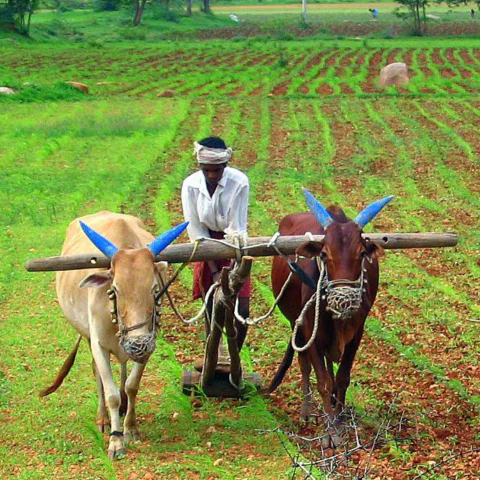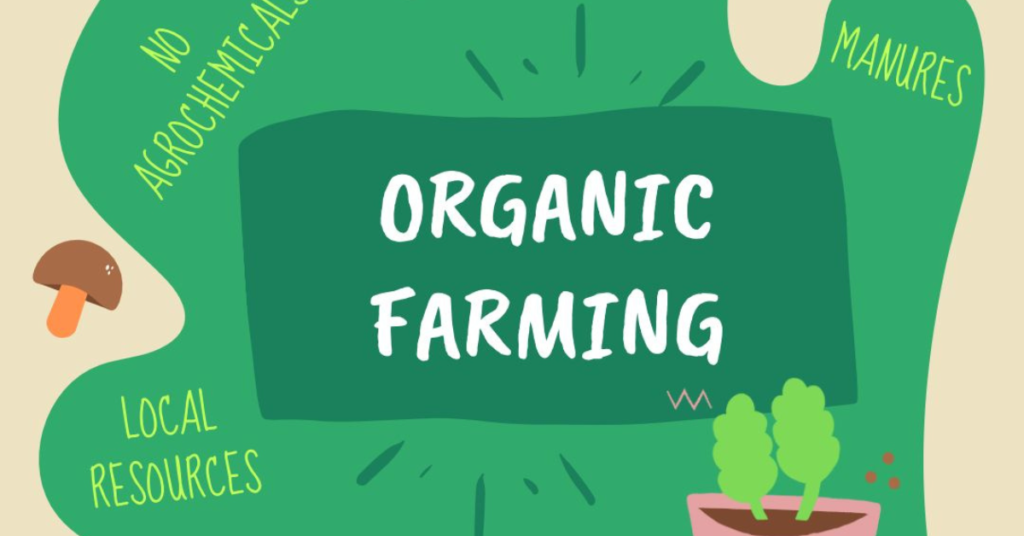
Organic farming resources encompass a wide array of tools, guides, and support systems crucial for promoting sustainable agricultural practices. These resources are designed to aid farmers in adopting and maintaining organic methods, which emphasize soil health, biodiversity, and ecological balance. Guides provide practical advice on crop rotation, composting, natural pest management, and other organic techniques that minimize reliance on synthetic inputs. Tools range from soil testing kits to digital platforms that facilitate organic certification processes and market access. Additionally, support networks offer educational workshops, funding opportunities, and policy advocacy to empower farmers transitioning to organic farming. By leveraging these resources, farmers can enhance productivity, reduce environmental impact, and meet the growing consumer demand for organic produce, thereby contributing to a healthier food system and planet.

Organic farming resources are essential components in supporting farmers who aim to adopt and sustain organic agricultural practices. These resources encompass a diverse range of tools, guides, support networks, and educational materials designed to promote sustainable farming methods that prioritize soil health, biodiversity conservation, and environmental stewardship.
One of the primary categories of organic farming resources includes educational guides and manuals. These resources offer comprehensive information on organic farming principles, techniques, and best practices. Farmers can access guides that cover topics such as organic crop production, soil management, composting, natural pest and disease control, and crop rotation. These guides are often developed by agricultural extension services, universities, organic farming associations, and government agencies. They provide practical, step-by-step instructions tailored to different crops and climates, helping farmers implement effective organic farming strategies.
In addition to educational guides, digital tools and technology play a crucial role in supporting organic farming practices. Farmers can utilize soil testing kits to assess soil fertility and health, enabling them to make informed decisions about nutrient management and soil amendments. Furthermore, digital platforms and mobile applications provide resources for organic certification processes, record-keeping, market access, and farm management. These tools streamline administrative tasks, facilitate compliance with organic standards, and enhance efficiency on the farm, thereby supporting sustainable agricultural practices.
Support networks and organizations also constitute vital organic farming resources. These networks connect farmers with experts, peers, and industry stakeholders who share knowledge, experiences, and resources related to organic farming. Organizations such as organic farming associations, cooperatives, and non-governmental organizations (NGOs) offer workshops, training programs, and educational events focused on organic agriculture. They provide technical assistance, funding opportunities, and advocacy efforts to promote policies that support organic farming and sustainable food systems.
Financial incentives and grants represent another critical aspect of organic farming resources. Governments, international organizations, and private foundations often provide financial support to help farmers transition to organic farming practices or expand their organic operations. These incentives may include subsidies for organic certification fees, grants for infrastructure improvements, and funding for research and development of organic farming techniques. These financial resources alleviate some of the economic barriers associated with organic farming, making it more accessible and financially viable for farmers to adopt sustainable agricultural practices.
Furthermore, research and innovation contribute significantly to organic farming resources. Agricultural research institutions, universities, and private companies conduct studies and trials to develop new organic farming techniques, improve crop varieties adapted to organic conditions, and enhance pest and disease management strategies. Research findings are disseminated through publications, conferences, and extension services, providing farmers with evidence-based information to optimize their organic farming practices and address emerging challenges.
Consumer education and market development initiatives are also integral components of organic farming resources. Public awareness campaigns and educational programs inform consumers about the benefits of organic agriculture, such as reduced pesticide exposure, improved soil health, and support for biodiversity. Market development efforts focus on expanding access to organic markets, promoting organic products through certifications and labeling, and facilitating direct marketing opportunities for organic farmers. These initiatives create demand for organic products, incentivizing farmers to adopt organic practices and invest in organic certification.
Challenges and opportunities exist within the realm of organic farming resources. While access to information and support networks continues to expand, disparities in resource availability persist among different regions and farming communities. Small-scale farmers, particularly in developing countries, may face barriers such as limited access to technology, financial resources, and educational opportunities related to organic farming. Efforts to enhance inclusivity, equity, and accessibility in organic farming resources are crucial for ensuring that all farmers can benefit from sustainable agricultural practices.
Looking forward, the evolution of organic farming resources will be shaped by emerging trends and global challenges. Climate change, water scarcity, biodiversity loss, and food security concerns underscore the importance of sustainable agriculture and organic farming as viable solutions. Organic farming resources will continue to evolve to meet these challenges, leveraging innovation, collaboration, and knowledge-sharing to support farmers in adapting to changing environmental conditions and market demands.
In conclusion, organic farming resources encompass a diverse array of tools, guides, support networks, financial incentives, research initiatives, consumer education efforts, and market development strategies. These resources play a pivotal role in promoting sustainable agricultural practices, enhancing productivity, improving environmental outcomes, supporting rural livelihoods, and meeting consumer demand for organic products. By empowering farmers with knowledge, technology, and support, organic farming resources contribute to building resilient food systems that prioritize environmental sustainability, biodiversity conservation, and equitable economic development.









